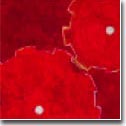



|
|
 |
 |
How are shell variables assigned?
|
| |
For shells from the C shell category (tcsh and
csh), you can use "set
variable=value" form to assign variables local to the shell,
-
$ set variable_one=9999
and "setenv variable value" for environment
variables. For example, DISPLAY environmental variable can be defined
using
-
$ setenv DISPLAY sparky:0
For C shell category (tcsh and csh), you can get rid of
defined or exisitng variables in local shell by using
-
$ unset variable_one
and you can also get rid of defined or exisitng environmental variables
by using
-
$ unsetenv DISPLAY
For shells from the Bourne shell category (bash, zsh
and sh), you can use "variable=value"
form to assign variables local to the shell,
-
$ variable_two=9999
and to place the variable into the environment
simply by using "export"
-
$ export DISPLAY=sparky:0
To get rid of defined or exisitng (environmental) variables, use
-
$ unset <variable>
For further details, RTFM on "set",
"setenv",
"unset",
"unsetenv" and
"exort".
|
|
|


